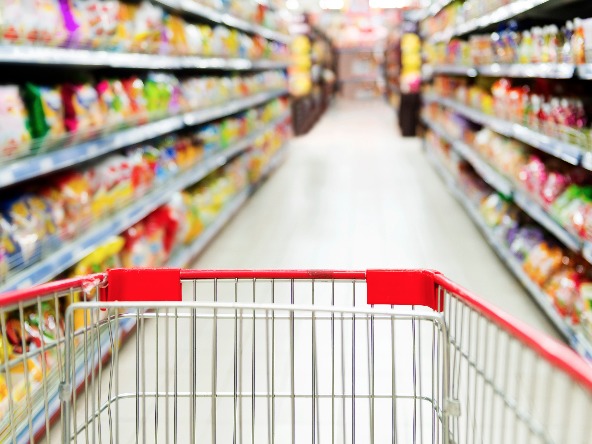NEWS19 March 2024
All MRS websites use cookies to help us improve our services. Any data collected is anonymised. If you continue using this site without accepting cookies you may experience some performance issues. Read about our cookies here.
NEWS19 March 2024
UK – Consumer spending on fast-moving consumer goods (FMCG) rose in 2023 as finances continued to be impacted by the cost-of-living crisis and higher inflation, according to data from NIQ and GfK.

The data, from the NIQ Retail Spend Barometer, which combines data from NIQ and GfK, showed that FMCG and tech and durables had a 5% rise in consumer spending to a combined £281.5bn.
NIQ and GfK said that this increase in spending was driven by price increases for food and personal care products, while consumers made cuts to spending on tech and durables to compensate.
This led to significant growth rates for sales in food (+7.6%) and fresh food (+9.6%) in the last quarter of 2023, according to the barometer.
Concerns over the cost of living also impacted the way shoppers chose to make their purchases, the companies said, with sales of private label items exceeded those of brands in UK grocery in the last quarter of 2023.
Increases in supermarket promotions, which rose to the highest levels ( 25.3%) in four years, also helped FMCG sales as inflation slowed at the end of 2023.
NIQ and GfK data showed that the overall tech and durables market was -2.8% in 2023 and slipped into an even further decline in the fourth quarter (-3.5%).
A downturn in sales for technical consumer goods (-7%), which includes products such as TVs and computing, were a major contributor to this decline.
However, trends such as premium wellbeing and personal care led to an increase in sales for hair stylers (+8.4%) electric toothbrushes (+9%), and health-based products such as blood pressure monitors (+11.2%).
Spending on homes also rose, with year-on-year increases in sales for painting and decorating ( 7.4%) and power tools (+14.5%), which NIQ and GfK said reflects people investing more in their own homes as the housing market slowed.
Ben Morrison, retail services director UK and Ireland at NIQ, said: “Despite inflation slowing, shoppers are still impacted by the rise in prices and in 2024 we anticipate they will continue to strive for value and affordable solutions in where and how they shop.
“Grocery retailers will therefore continue to drive an intense focus on competitive pricing, promotions and loyalty card benefits.”
Morrison added: “When it comes to technology and durables, this sector has had significant challenges over the last year. This was brought on by the surge in demand over the pandemic, which in turn has led to consumers no longer needing new products.
“But it is also compounded by the cost-of-living crisis – consumers simply have had their income squeezed and are cutting unnecessary costs on this category. However, our data shows that 46% of shoppers are prepared to pay more for a product that makes their lives easier.”
Michael McLaughlin, president, global retail at NIQ, said: “Market dynamics and consumer behaviour are changing ever faster. In a competitive environment, fragmented data and a dose of gut feeling are no longer enough.”
0 Comments